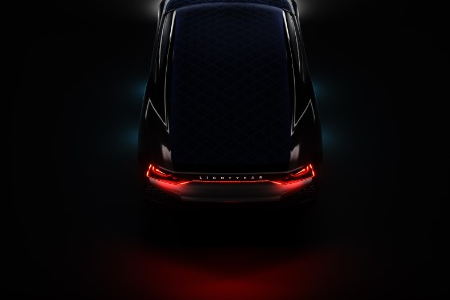

The Solutions Explorer lets you create alerts that match your needs. You can create several alerts and you will receive a notification each time a new Solar Impulse Efficient Solutions is labelled and matches your filters.
Your Search Alerts will show up here.
Sign in to create alerts for your filters and search terms.
Sign inDon't have an account?
Sign upJanuary 19, 2023
BNP Paribas
Paris

BNP Paribas, in partnership with Arval, has pre-ordered 10,000 units of the solar electric vehicle Lightyear 2, highlighting their dedication to sustainable mobility and reducing urban transport carbon footprints. This move marks a significant step in adopting green technology and renewable energy, as Lightyear's solar cars can drastically reduce the need for traditional charging and fossil fuels. The cars promise extended range, low operational costs, and minimal environmental impact, positioning BNP Paribas as a leader in sustainable practices and setting a model for other organizations seeking greener solutions.
The grand total of pre-orders for the Lightyear 2 from business-to-business (B2B) partners has now surpassed an impressive 21,000 units. This milestone reflects significant demand and interest in the innovative solar electric vehicle, further underscoring its market potential. These pre-orders translate to an estimated revenue of nearly €840 million, highlighting the strong financial prospects associated with the vehicle's launch and widespread adoption.
The car can be driven for weeks without charging from the electricity grid because it is highly efficient as a result of an extreme low air resistance, four independently controlled in-wheel motors with no transmission loss, state of the art solar power panels and electronics enabling the car to charge directly from the sun. Charging speeds vary from 12 km/h on solar, 35 km/h on a normal socket to 570 km/h with 60 kW fast charging. This car reduces the total amount of CO2 over lifetime (make, use and dispose) of 70% compared to a similar gasoline car and reduces the power consumption from the grid substantially, compared to standard electric vehicles.
Share
The information set out above, is solely for the purposes of information and the Solar Impulse Foundation does not provide any guarantee as to its authenticity, completeness or accuracy. This information does not constitute investment advice or a recommendation to buy into, transact or to enter into any agreement with any of the parties or persons mentioned above. Potential investors or interested parties are solely responsible for their investment or business decisions and for performing any due diligence required by the circumstances. The innovator has asserted ownership of the intellectual property rights for images, videos, and content showcased above, affirming full and unrestricted usage rights, and has provided explicit permission for the Solar Impulse Foundation to publish such information designated as "public" in the application form.